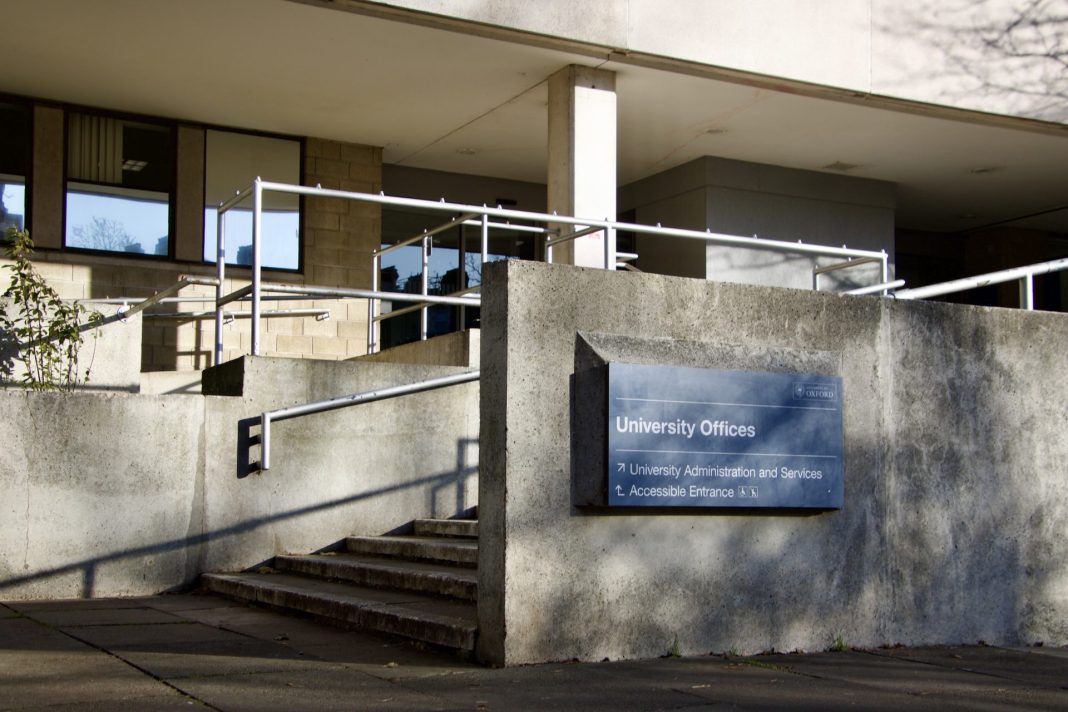As reported by Cherwell last week, the Ethical Investment Representations Review Subcommittee (EIRRS) is conducting a review of the University’s current investment policy. The University, in its newsletter Gazette, notes that this review follows ‘concerns raised by members of the community’. While this may feel like a ludicrous understatement for over a year of students, staff, and Oxford residents demanding an overhaul of investment policy, the review is welcome. In fact, it is urgently necessary in order to move away from the current policy, which is woefully unfit for the times.
EIRRS is part of the University’s Investment Committee, which sets guidance for Oxford University Endowment Management (OUem), a subsidiary company of the University responsible for managing the University’s investments. Its purpose is to ensure that OUem stays consistent with ethical standards as raised by the University community. If the conclusion of the present review does not result in a drastic change of policy, it will have failed to do so.
So, what so badly needs an overhaul? Simply put, the most crucial step is to close loopholes. The ethical investment rules as they currently stand are carefully worded to allow the University to continue drawing revenue from investment in arms. The University cannot make ‘direct investments’ in companies which manufacture arms that are illegal in the UK. The issue here should be pretty clear: investments in illegal arms are still very much possible. Plenty of investment funds offered by large investment companies independently hold shares in weapons manufacturers. An asset manager like OUem can have its money invested in arms companies not constrained by UK law, without such investments being ‘direct’.
Additionally, there are many weapons legal under UK law which are currently being deployed against civilian populations. To give one example, quadcopter drones, which are used in the UK by the arms company Raytheon to promote ‘aerospace’ careers to children, have been observed by a British surgeon in Gaza deliberately targeting children injured by Israeli bombings. Using UK law as the gold standard for ethical investment in this context is nothing less than an abdication of responsibility.
The University has largely stood behind this clearly lacking policy, even in the face of concerted action by groups like Oxford Action for Palestine (OA4P), which set up two encampments within the University last Trinity Term. In a statement in May responding to protest action by OA4P, the University did not address concerns with investment policy, instead highlighting efforts to set up a scholarship scheme for Palestinian students, and strengthening relationships with Gazan universities. Given that Israeli forces had destroyed all twelve universities in Gaza by May, the statement rang a little hollow. The University has also increased its subscription to the Council for At-Risk Academics (CARA) and made online educational resources available for Palestinians. These measures are welcome, and might bring some benefit to students in the West Bank or East Jerusalem, but they fail to address the root issue: the University is financially contributing to, and drawing revenue from, Israeli genocide in Palestine. Scholarship programs will not stop the Israeli government from bulldozing villages in the West Bank. A student in Gaza with no home, no university, and no internet connection is hardly going to be reassured by having a login for SOLO.
The issue of arms investment is bigger than Palestine, though. Armed conflict around the globe is on the rise. This week, British-made missiles were fired into Russia. Vladimir Putin has lowered the threshold for the Russian deployment of nuclear weapons. The onslaught on Palestine has turned into a regional war. Tightening the University’s opportunities for investment in the technologies that will continue to be used to wreak havoc on civilian populations is an urgent need – not just for Palestine, but for Congo, Sudan, or any other part of the world experiencing or at risk of armed conflict.
The ethical arguments for divestment from arms are very easy to lay out. However, it is not just ethics the University should consider. The legal and publicity implications are also significant, which is why these conversations must also extend beyond investment policy. The International Criminal Court last week issued arrest warrants for Israeli Prime Minister Benjamin Netanyahu and former defence minister Yoav Gallant. If Israeli leaders are found liable for war crimes, then private entities who enabled their actions might face legal ramifications.
This has precedent. French cement conglomerate Lafarge, which paid protection money to Islamic State (IS) to be able to continue its operations in Syria, has been subject to a fine and a civil lawsuit in America, as well as a criminal case in France which alleges the company’s complicity in crimes against humanity. Similar accusations might be levelled at Israeli universities, which are deeply enmeshed in the country’s arms industry. Now, of course, Oxford University is far enough removed not to be directly liable in the same way. However, if Israeli politicians are held responsible for war crimes, an Oxford which continues to invest in arms and retain its ties to Israeli universities will face severe reputational damage – even if the University avoids legal trouble. For all of these reasons, the EIRRS review has to end in a root-and-branch restructuring of the University’s approach to investment.
This will affect not only the University’s investments, but also those of individual colleges. Many colleges manage their investments wholly or partially through OUem. Given that the sum of college endowments is a little over four times the size of the University’s, this is arguably even more important. While the review is a crucial first step, much more work needs to be done. Those investments that fall outside the remit of EIRRS will not be changed by this review regardless of its conclusions. Meanwhile, as the University and its colleges continue to direct money towards the deaths of hundreds of thousands around the world, and draw revenue from this violence, it is the responsibility of every member of the University community to keep up the pressure.


